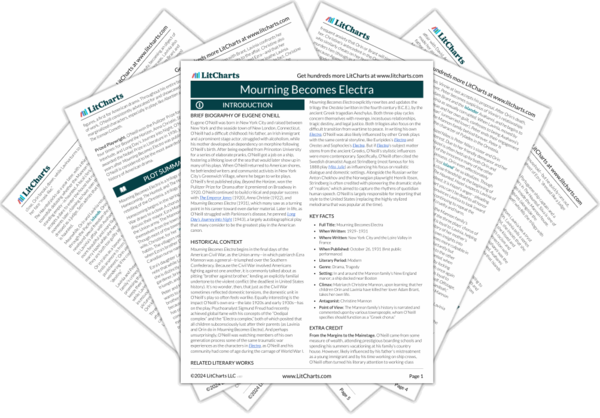Already, the Mannons’ incestuous undertones begin to show through: Brant, initially presented as a potential lover for Lavinia, is actually her cousin. And indeed, once audiences get a glimpse of Brant, the “mask”-like expression he wears immediately links him to the Mannons—in their classical, almost ancient stoniness, and in the sense that they are all hiding their true identities and feelings behind their stoic “masks.”
